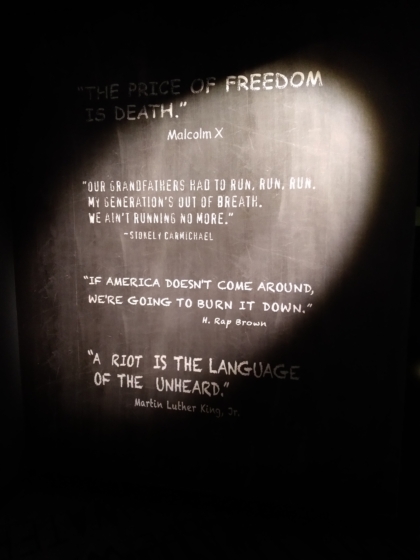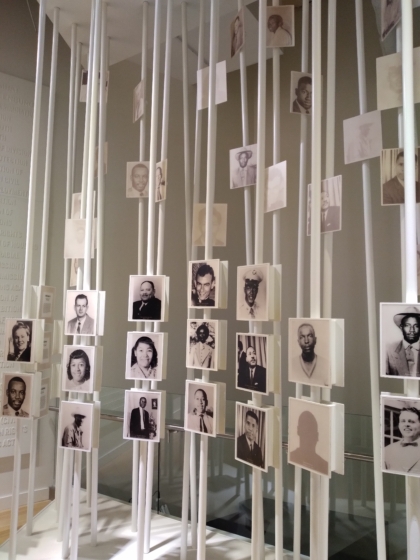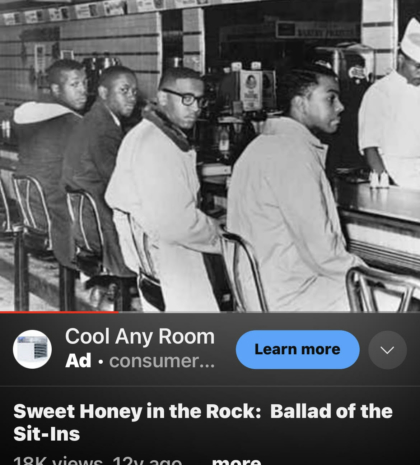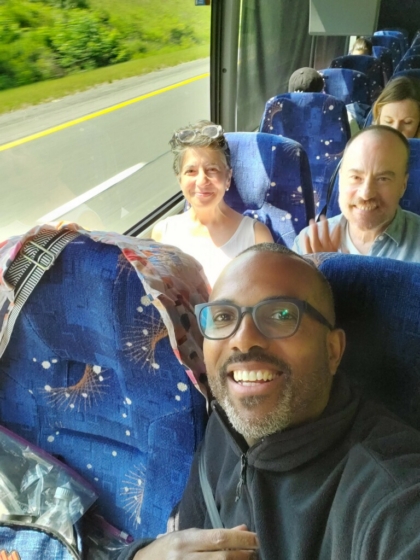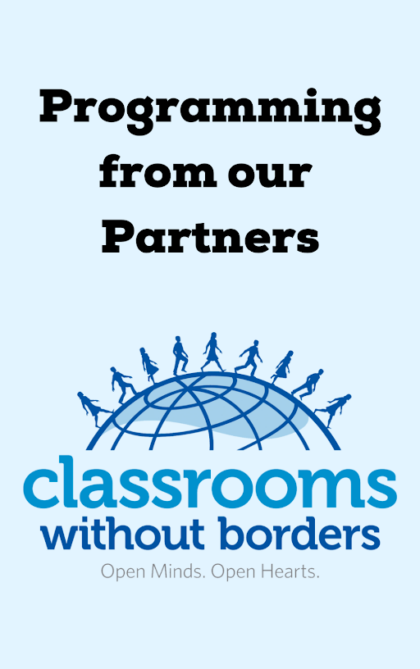Racial Justice
Marching Down Freedom’s Road, Day 2 We rose early for a 7 am departure on our bus, headed towards Atlanta. The parallels rose in my mind to the era we […]
Read MoreDay 2 begins bright & early with some breakfast at the hotel. Then we hop on the bus and head towards Atlanta. Our destination here was the National Center for […]
Read MoreMarching Down Freedom’s Road Day 1 by Michele Russo
As we leave Pennsylvania and head south, Michael Narag0n (one of our scholars) forwards a playlist for us to listen to. Music is powerful; one of my favorites start. Sam […]
Read MoreBlog day 1, Greensboro by Daneila Buccilli
The day was full and in the best way: we left our school year behind and 22 of us shared a bus drive toward Greensboro, North Carolina and the International […]
Read MoreDay 1 Marching Down Freedom’s Road By Sarah Smith
We began our journey by meeting in the brisk morning air outside of Rodef Shalom & receiving our Classrooms Without Borders merch! After a few hours of sleep we stopped […]
Read More“Marching Down Freedom’s Road: PPS teacher taking part in Classrooms Without Borders”
Join a Pittsburgh Public School teacher on their journey down Freedom’s Road through the eyes of Classrooms Without Borders.
Read MoreHow do we address Holocaust denial? In this webinar, Dr. Efraim Zuroff, known as “The Last of the Nazi Hunters,” discusses how to debunk Holocaust denial and speaks on Holocaust […]
Read MoreWhy Teach this Book? A Letter to Educators from the Author Dear Teacher, Thank you for bringing What the Fact?! into your classroom. I hope the book activates and energizes your teaching […]
Read MorePost Film Discussion After Munich with Francine Zuckerman & Moderated by Avi Ben Hur Whether you witnessed it live, learnt about it or never even heard of the Munich Massacre […]
Read MoreHow to Address Trauma Related to Curriculum Violence
What Is Curriculum Violence?
Curriculum violence refers to the subjective curricular choices around lesson planning or learning experiences that cause a student psychological harm, intellectually and/or emotionally. These educational interactions can exacerbate historical or institutional trauma, particularly for historically oppressed and marginalized groups such as people of color, women, people of varying faith, members of the LGBTQ community, people with disabilities, dual-language learners and people from immigrant populations.

